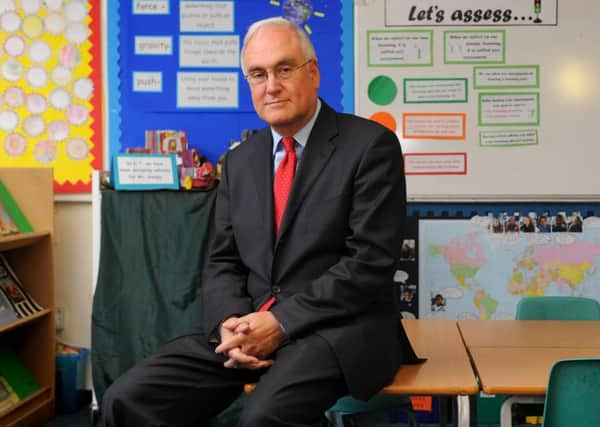Inquiry into Islamic influence in schools extends to Yorkshire city


Sir Michael Wilshaw, the chief inspector of schools, told MPs that problems surrounding the way governors approach their role were not confined to Birmingham where allegations of a plot to takeover schools led to five being placed in special measures last month.
The Ofsted chief was asked if there was an issue elsewhere in the country with governors seeing their role as running a school rather than overseeing its policies.
Advertisement
Hide AdAdvertisement
Hide Ad“We are looking at other schools where this might be happening,” he said. “We’ve certainly been to schools in Bradford and Luton.”
Bradford Council did not comment.
Sir Michael said that where Ofsted receives information about concerns, they are conducting unannounced inspections.
He suggested that there was a “wider issue” about how schools are governed, revealing that Ofsted has been looking at around 20 schools across England that have been downgraded from outstanding to inadequate due to “failings in governance”.
He later told the committee that there needs to be more professional governors, saying there has been a reliance on “amateurish governance to do a professional job”.
Advertisement
Hide AdAdvertisement
Hide AdThe inspections in Birmingham were triggered by a letter suggesting there was a plot known as “Trojan Horse” by Muslim hardliners to take over city schools.
The letter is now widely regarded as a hoax, but Sir Michael said that several headteachers in Birmingham believed that there had been organised infiltration of the governing bodies of schools by Muslim hardliners.
“The headteachers I spoke to believed there was orchestration and manipulation.
“I spoke to about eight or nine headteachers and they believe it was planned and orchestrated.
Advertisement
Hide AdAdvertisement
Hide Ad“They believed people got together and decided which schools to target. They believed that often governing body meetings couldn’t take place in the normal manner because governors were determined to get their way.” He suggested that there may need to be a change in the law to allow outstanding schools to be inspected more often.
“We do re-inspect outstanding schools where there is a dip in performance and where our risk assessment process triggers an inspection,” Sir Michael said.
“Possibly there needs to be a change in legislation to allow us to inspect outstanding schools on a regular basis in a way that we intend to inspect good schools.”
Plans are in already place to inspect “good” schools more often, but Sir Michael said he would like to see inspectors going into those schools every three years.
Advertisement
Hide AdAdvertisement
Hide AdHe told MPs: “Even within these shorter inspection schedules schools can slip. There is a big debate to be had about how increasingly autonomous schools are going to have effective oversight.”
Ofsted faced criticism because the schools declared inadequate by inspections triggered by the Trojan Horse letter had previously been found to be good or outstanding.
“It’s possible to miss these issues, particularly if headteachers are frightened, if school leaders are frightened, if teachers are frightened to speak out because of fear for their jobs, fear they won’t be promoted,” said Sir Michael.
Comment: Page 16